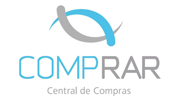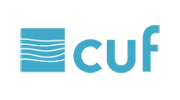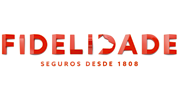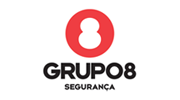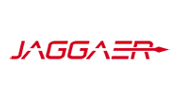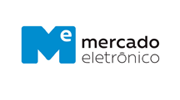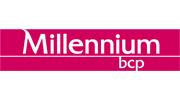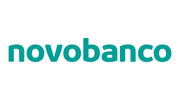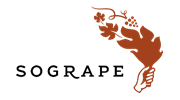 Homepage »
APCADEC »
Code of Ethics
Homepage »
APCADEC »
Code of Ethics
Code of Ethics | We invite our Collective Members and all companies, even if they are not members of APCADEC, to subscribe to this Code of Ethics.. See all the companies that already subscribed!
APCADEC CODE OF ETHICS
APCADEC - Associação Portuguesa de Compras e Aprovisionamento (Portuguese Association for Purchasing and Supply Management) is committed to bringing the highest standards of behaviour and Ethics to Procurement activities in Portugal. For this purpose, the Association chose to develop a Code of Ethics, which summarises the values and behaviours that it aims to promote among its members, respective organisations and the entire Purchasing community in Portugal.
APCADEC believes that having a Code of Ethics helps strengthen an attitude of professionalism and transparency, leading to a decrease in financial, operating and reputational costs for organisations. The existence of guiding principles such as those advocated in this document helps align the efforts of teams in the performance of their daily activities, ensuring greater efficiency and a high standard of quality.
In line with the International Federation of Purchasing & Supply Management (IFPSM), an organisation of which APCADEC is a member, we defend and aim to disseminate a set of principles which we believe should govern the behaviour of any Procurement professional.
Above all, we intend this document to be fully in accordance with the Universal Declaration of Human Rights, the International Labour Organisation’s Declaration on Fundamental Principles and Rights at Work, the Rio Declaration on Environment and Development, and the United Nations Convention against Corruption, documents that are the basis of the Ten Principles of the United Nations Global Pact.
We believe that Procurement professionals should integrate these 10 principles into their strategies, policies and procedures, so that their organisations are guided by a culture of Integrity and Ethics:
Human rights
Principle 1: Businesses should support and respect the protection of internationally proclaimed human rights; and
Principle 2: make sure they are not complicit in human rights abuses and violations.
Trabalho
Principle 3: Businesses should uphold the freedom of association and effective recognition of the right to collective bargaining;
Principle 4: the elimination of all forms of forced and compulsory labour;
Principle 5: the effective abolition of child labour; and
Principle 6: the elimination of discrimination in respect of employment and occupation.
Environment
Principle 7: Businesses should support a precautionary approach to environmental challenges;
Principle 8: undertake initiatives to promote greater environmental responsibility; and
Principle 9: encourage the development and diffusion of environmentally friendly technologies.
Anti-Corruption
Principle 10: Businesses should work against corruption in all its forms, including extortion and bribery.
In addition to the preceding principles, there is a set of guidelines that are intended to underlie the daily actions of a Procurement professional:
1. Conflict of Interest
A Conflict of Interest is defined as any issue that may interfere with the Procurement professional’s judgement or decision-making process in the performance of their tasks.
It is the professional’s duty to declare to the entity they represent, any conflict of interest to which they may be subject, even if in an abstract manner. This is the only way to ensure that, in their role as a Purchasing Professional and in the relationship with suppliers, partners and the community, the interests of the organisation they represent are placed above their own interests or those of third parties.
2. Gifts and Offers
Accepting gifts and/or offers from suppliers may compromise the judgement and/or impartiality of the Procurement professional. This may also affect the concept of transparency that should always be associated with any procurement process.
In this sense, it is recommended that accepting gifts offered by supplying companies should be moderate, leaving the limits considered appropriate in this matter to the discretion of each institution.
3. Bribery and Corruption
Procurement professionals should not donate, promise to donate or offer to donate any value to any person for the purpose of influencing any act or decision, especially in the interaction with public entities and government employees.
Likewise, Procurement professionals should not be subject to any kind of offer that may influence their decision-making process, and therefore they should not accept and/or request any value from any person or institution.
4. Confidentiality
The confidentiality and specificity of information should always be respected, and the Procurement professional should not disclose information that may compromise the interests of the organisation they represent. The same should be required by the professional regarding their suppliers and the entities with whom they interact.
5. Transparency and Professionalism
Procurement processes should be characterised by transparency, as this is the only way, guaranteed by clear and auditable processes, standardised supporting documentation and clear rules for adjudication, to achieve fair competition that promotes the best result in the negotiation processes undertaken.
APCADEC believes that only by promoting the aforementioned principles and guidelines, accompanied by a desire for continuous improvement on the part of the Association’s members, will it be possible to work continuously and with dignity to increase the strategic impact of the Procurement process in the organisations it represents.
We count on everyone's collaboration
in this common goal!
We also invite our Collective Members and all companies, even if they are not members of APCADEC, to subscribe to this Code of Ethics.
To subscribe to this Code of Ethics: download the document (word format), fill the data and send it to us by email, along with your companie logo, to: dir.geral@apcadec.org.pt




